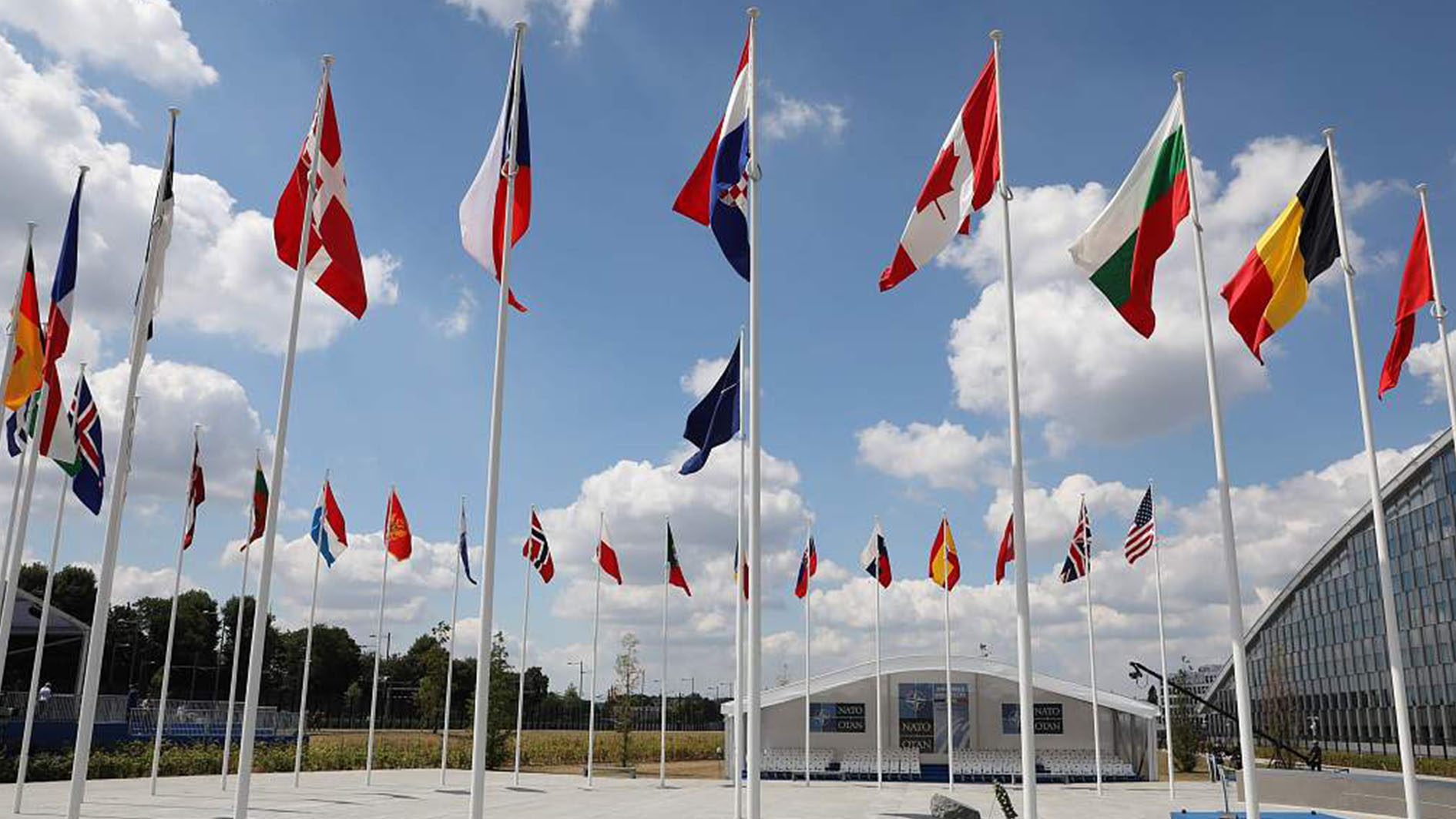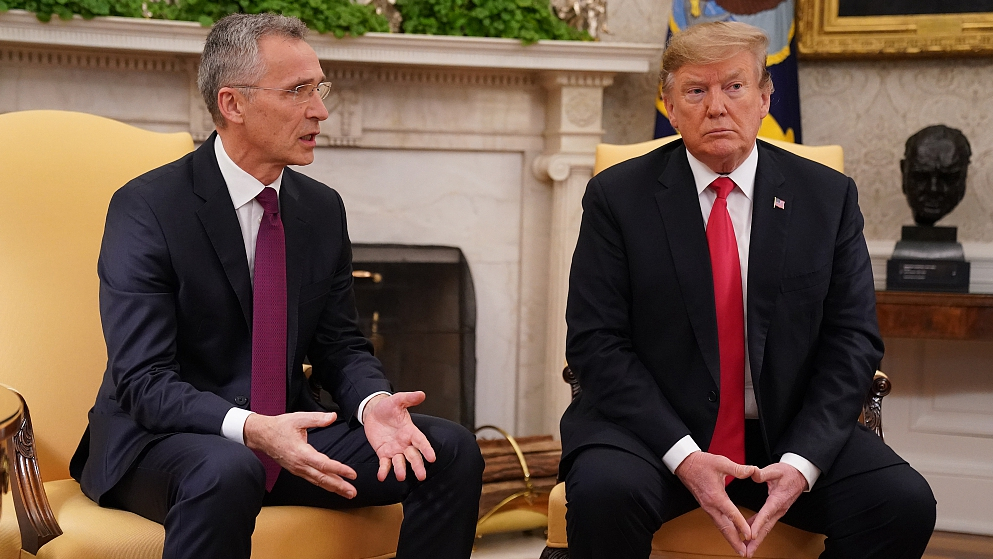
World
17:00, 04-Apr-2019
70 years of NATO: Divisions arise between U.S. and member countries
Timothy Ulrich and Wu Yuhan
01:49

Since coming into office, U.S. President Donald Trump has threatened to upend relations with several multilateral organizations - NATO being near the top of the list. The most divisive stance he's taken against the organization is his contention that member nations are not paying their fair share.
NATO has always been aimed at bringing together countries in the North Atlantic. But now, lines of division are threatening to push the organization to its limits.
In July, Donald Trump in two separate tweets accused NATO countries of shortchanging the U.S., and that Washington is footing the bill for the entire organization.
This came just before meeting with leaders of NATO countries, and it has continued to be a talking point among U.S. officials.
This set off measured responses from key European leaders. German Chancellor Angela Merkel earlier this year assured the Bundestag they will follow up on its commitments.

NATO Secretary General Jens Stoltenberg (L) and U.S. President Donald Trump talk to reporters in the Oval Office at the White House in Washington, D.C., April 2, 2019. /VCG Photo
NATO Secretary General Jens Stoltenberg (L) and U.S. President Donald Trump talk to reporters in the Oval Office at the White House in Washington, D.C., April 2, 2019. /VCG Photo
"But I guarantee, and the German government guarantees that we will meet that obligation," Merkel said.
Merkel and French President Emmanuel Macron have been leading a push for a European Army - a response to Trump's pressure and threats to leave NATO. And Macron has responded to Trump's calls by agreeing with the U.S. president, saying Europe should share more of the burden.
He explained his reasoning during a celebration marking the 100th anniversary of the end of World War I. "First, because we are celebrating here the friendship between our people, our military, and the great solidarity there was between us, who are among the oldest allies in the world."
But only more turmoil developed after Trump pulled out of the Intermediate-Range Nuclear Forces (INF) agreement, a landmark arms control deal between the U.S. and the then-Soviet Union. A move NATO Secretary General Jens Stoltenberg warned might lead to a new arms race during his address to the U.S. Congress on Wednesday.

SITEMAP
Copyright © 2018 CGTN. Beijing ICP prepared NO.16065310-3
Copyright © 2018 CGTN. Beijing ICP prepared NO.16065310-3